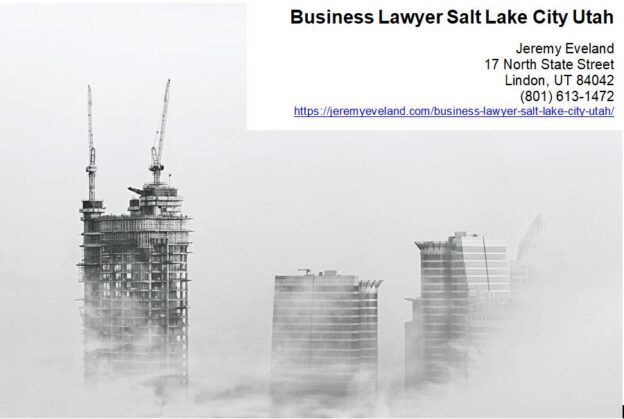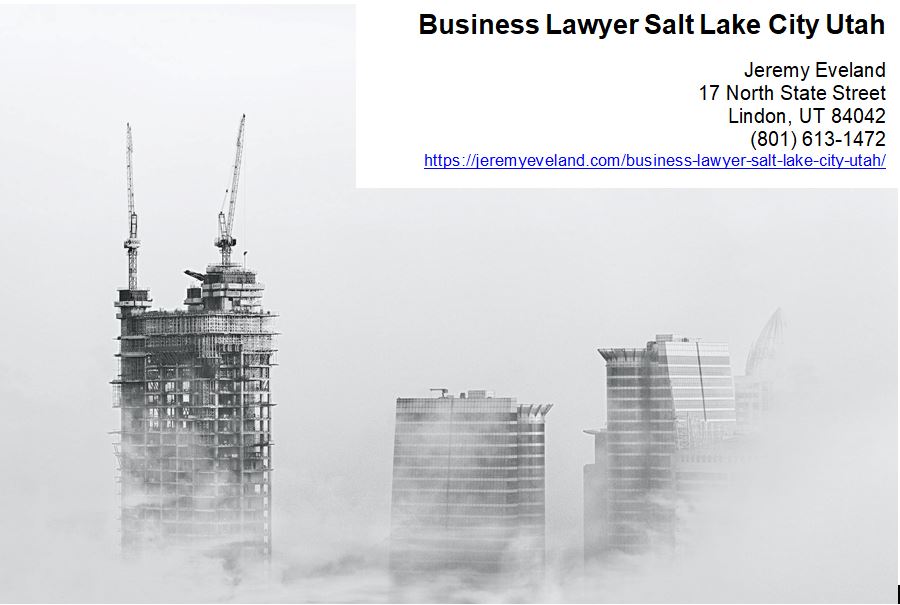Law Firm
The law firm is an integral part of the legal industry in the United States. According to the National Law Journal’s 2018 report, there were 1,232 law firms across the nation in 2017, with gross revenue of $262.97 billion. New York City-based law firms make up the majority of this revenue, with the top ten grossing law firms in the United States having a combined total of $52.2 billion in revenue.
The law firm landscape has changed dramatically over the years. There are now firms of all sizes and with a wide range of specialties, from business law to real estate law, estate planning, probate law, criminal defense, contract law, and injury law. With this diversity comes a wide range of business models and strategies, as well as a wide range of rankings, revenues, and other metrics to measure success. This paper will discuss the various aspects of law firms, including size, software, rankings, revenue, attorneys, management, practice areas, lawyers, and more. It will also discuss the current state of the world’s leading law firms, as well as the ways in which law firms are changing to meet the needs of their clients.

Explore the Spectrum of Trans Dating in New Zealand!
Are you curious about the diverse and vibrant world of trans dating in New Zealand? Look no further! In this article, we will take you on a journey to explore the spectrum of trans dating, shedding light on the experiences, challenges, and triumphs of the trans community in the realm of dating. From navigating online platforms to discovering safe spaces, we will delve into the intricacies of trans dating and provide valuable insights for both trans individuals and their potential partners.
Join us as we uncover the nuances of trans dating in New Zealand, a country known for its progressive attitudes and acceptance of diverse identities. Whether you are an ally seeking to understand the trans experience or a trans individual seeking connection and love, this article will serve as a valuable resource. What are the unique hurdles faced by trans individuals in the dating world? How can we foster inclusivity and support in relationships? Get ready to challenge societal norms and embrace the beauty of trans dating in New Zealand!
Understanding the Transgender Experience: A Look into the Diverse Dating Landscape
Are you a transgender individual looking for love, companionship, or simply someone who understands your unique journey? Look no further than the diverse and inclusive world of trans dating in New Zealand! With a vibrant and accepting community, there are plenty of opportunities to connect with like-minded individuals who share your experiences and aspirations. Whether you are seeking a serious relationship or casual connections, there are numerous trans dating sites in New Zealand that cater specifically to the trans community. One such platform is Lovezoid, which offers a safe and welcoming space for trans individuals to explore romantic possibilities. To learn more about the spectrum of trans dating in New Zealand, visit https://lovezoid.com/nz/trans-dating-sites/ and embark on a journey of love and self-discovery.
Trans dating in New Zealand is a vibrant and diverse landscape, with individuals from all walks of life embracing their true selves and seeking meaningful connections. Whether you identify as transgender, non-binary, or genderqueer, there are trans dating sites that cater specifically to your needs and preferences. These platforms provide a safe and inclusive environment where you can explore your romantic possibilities without fear of judgment or discrimination. Lovezoid is one such platform that offers a range of features to help you connect with potential partners who understand and appreciate your unique journey. To discover the spectrum of trans dating in New Zealand and find your perfect match, visit https://lovezoid.com/nz/trans-dating-sites/ and embrace the exciting world of trans dating in New Zealand!
Navigating Relationships: Challenges and Triumphs for Trans Individuals in the Dating Scene
New Zealand offers a vibrant and diverse community for individuals exploring the spectrum of trans dating. With its progressive and inclusive culture, the country provides a safe and welcoming environment for people of all genders and sexual orientations. Whether you identify as transgender, non-binary, or genderqueer, New Zealand embraces diversity and offers a range of opportunities to connect with like-minded individuals.
From social events and support groups to online platforms and dating apps, there are various avenues to explore trans dating in New Zealand. The LGBTQ+ community in cities like Auckland, Wellington, and Christchurch organizes regular meetups, discussions, and workshops, providing a space for trans individuals to connect, share experiences, and build meaningful relationships. Moreover, online platforms such as Transgender Dating NZ offer a convenient way to meet potential partners within the trans community. These platforms provide a safe and inclusive space where individuals can connect, chat, and get to know each other before taking the next steps in their dating journey.
Embracing Intersectionality: Exploring the Interplay of Gender Identity, Sexual Orientation, and Dating Preferences
Discover the diverse and vibrant world of trans dating in New Zealand, where individuals from all across the gender spectrum come together to form meaningful connections and forge genuine relationships. From the bustling streets of Auckland to the picturesque landscapes of Wellington, the trans community in New Zealand is thriving, offering a safe and inclusive space for individuals to express their true selves and explore romantic possibilities.
Whether you identify as transgender, non-binary, genderqueer, or any other gender identity, New Zealand provides a supportive environment for trans dating. With a growing number of trans-friendly dating platforms and social groups, there are ample opportunities to meet like-minded individuals who share similar experiences and understand the unique challenges faced by the trans community. Embrace the freedom to be your authentic self and embark on a journey of self-discovery, where you can connect with others who appreciate and celebrate the beauty of diversity.
Building Inclusive Communities: Promoting Acceptance and Support for Transgender Dating in New Zealand
Are you ready to embark on a journey through the vibrant and diverse world of trans dating in New Zealand? Get ready to explore the spectrum of experiences, connections, and relationships that await you. In this beautiful country known for its inclusivity and acceptance, trans dating has flourished, providing a safe and supportive environment for individuals to express their true selves and find love.
From the bustling cities of Auckland and Wellington to the picturesque landscapes of Queenstown and Christchurch, New Zealand offers a wide range of opportunities to connect with like-minded individuals. Whether you are looking for casual encounters, meaningful friendships, or long-term relationships, the trans dating scene in New Zealand has something for everyone. With a growing community of trans individuals and their allies, you can expect to find a welcoming and understanding community that celebrates diversity and fosters genuine connections. So, what are you waiting for? Take a leap into the world of trans dating in New Zealand and discover the beauty of being true to yourself.
Exploring the spectrum of trans dating in New Zealand is a fascinating journey that unveils a vibrant and diverse community. From the bustling cities to the serene countryside, there are countless opportunities to connect with like-minded individuals who understand and celebrate gender diversity. As we have discovered, online platforms such as Transdr and local support groups like Gender Minorities Aotearoa provide safe spaces for trans individuals to meet, form connections, and build meaningful relationships. Whether you are looking for love, friendship, or simply seeking to expand your social circle, the trans dating scene in New Zealand offers a welcoming and inclusive environment. So, go ahead and embrace the adventure, because love knows no boundaries, and the possibilities are endless!
Size and Software
Law firms come in all shapes and sizes. According to the National Law Journal (NLJ) survey, the largest firms have more than 500 attorneys, while the smallest firms have fewer than 10. Some firms may have multiple offices in multiple states, while others may have only one office. In addition, some firms may specialize in one practice area, while others may offer a broad range of services. The size of a firm can also affect the type of software they use. For example, larger firms may use more sophisticated software, such as document management systems, billing systems, and case management systems, while smaller firms may not need such sophisticated systems.
Ranking and Revenue
Law firms are ranked based on a number of criteria, such as total revenue and the number of attorneys. The NLJ survey ranks the 250 largest law firms in the U.S. by revenue, as well as the top 100 firms by number of attorneys. The survey also ranks firms by practice areas, such as business, real estate, estate planning, probate, criminal defense, contract, and injury law.
Attorneys and Management
Law firms are made up of attorneys, who are licensed to practice law in a particular jurisdiction. Attorneys are typically organized into teams, which may be led by a partner or a senior associate. Partners are typically the most senior attorneys in the firm and are responsible for managing the firm’s practice areas and clients. Associates are typically the junior attorneys and are responsible for researching legal issues and preparing cases.
Practice Areas and Lawyers
Law firms typically specialize in one or more practice areas. Common practice areas include business law, real estate law, estate planning, probate law, criminal defense, contract law, and injury law. Each practice area has its own set of rules and regulations, as well as its own set of lawyers. For example, a firm that specializes in business law may have corporate lawyers, mergers and acquisitions lawyers, and securities lawyers, while a firm that specializes in injury law may have medical malpractice lawyers and personal injury lawyers.
LLP and Menu of Services
Many law firms are organized as limited liability partnerships, or LLPs. An LLP is a type of business structure that allows the firm to offer a variety of services to its clients. LLPs also offer more flexibility to the partners, allowing them to choose from a “menu” of services to offer. For example, a law firm might offer services such as corporate formation, contract negotiation, intellectual property protection, mergers and acquisitions, and litigation. Some law firms are LLCs or Limited Liability Companies, or Corporations or even sole proprietorships.
World’s Leading Law Firms
The world’s leading law firms are those with the most revenue, the most attorneys, and the most clients. According to the NLJ survey, the top 10 largest law firms in the world are based in the United States, with two based in the United Kingdom and one based in Germany. These firms have a combined revenue of over $100 billion and employ more than 55,000 attorneys. Law firms come in all shapes and sizes, and offer a wide range of services to their clients. The size of the firm, the software it uses, the practice areas it specializes in, and the number of attorneys it employs all contribute to its success. The world’s leading law firms are those with the most revenue, the most attorneys, and the most clients. As the legal landscape continues to change, law firms must continue to adapt and evolve to meet the needs of their clients.
American Lawyer’s 2019 report shows that the largest law firms in the country are located in New York, with the top ten grossing law firms in the United States having a combined total of $84.3 billion in revenue. These law firms specialize in many different areas of law, including personal injury, corporate, tax, and intellectual property. The Westwood Law Firm, located in Los Angeles, is one of the largest law firms in the country and specializes in personal injury cases. With its stand-out feature of providing legal services, the firm has grown in popularity over the years.
Technology Based Law Firms
The legal profession has also seen the emergence of technology-based solutions, with many law firms now utilizing legal software and document management systems to manage their practice. These solutions have allowed firms to take on larger cases, provide better services to their clients, and increase their profits. One of the most popular law firm software solutions is cloud-based software. This type of software enables firms to store and manage legal documents in the cloud, allowing for easy access to files wherever they are needed.
Practice management software has also become a common tool for law firms. This type of software allows firms to track time, organize client files, and manage billing, among other features. For example, the Womble Bond Dickinson law firm utilizes a practice management system that allows them to track their time and manage their client files, while also providing legal document management capabilities.
The legal profession has also seen an increase in the number of legal studies programs that are available to students. These programs help students better understand the legal system and how to best navigate it in order to get the best outcome for their clients. Through these programs, students can learn how to draft legal documents, how to research legal topics, and how to effectively represent clients in court.
The legal profession is ever-evolving, with new technology and software solutions being developed to better serve the needs of law firms and their clients. With these changes, law firms are able to better serve their clients by providing better services and more efficient processes. For example, some companies provide legal services such as document management, practice management, and cloud-based software, allowing for better legal services for their clients.
Law firms, especially those located in the United States, have seen an incredible increase in gross revenue over the past few years. This has been due in part to the emergence of technology-based solutions, such as legal software and document management systems, which have enabled firms to handle larger cases and provide better services to their clients. Additionally, legal studies programs have enabled students to better understand the legal system and how to best navigate it in order to get the best outcome for their clients. As technology and legal studies continue to evolve, law firms will be able to better serve their clients and increase their profits.
Business Law Firm
Business law is an essential aspect of the legal system in Utah and consists of a broad range of legal topics, including contract law, bankruptcy, intellectual property, corporate and securities law, antitrust, business organizations, and taxation. Businesses operating in Utah must adhere to a complex set of laws, regulations, and procedures determined by the legislature, courts, and federal agencies. To properly navigate business-related legal matters, it is important to have a knowledgeable and experienced attorney who understands the nuances of Utah business law.
One of the key aspects of business law in Utah is contract law. The Utah Supreme Court has set up a series of rules that individuals entering into contracts must follow. For example, the court has held in cases such as Weber v. Deseret Book Co., 725 P.2d 1090 (Utah 1986), that contracts must be written in plain and clear language, and must be mutually agreed upon by both parties. In addition, contracts must be supported by consideration, meaning that both parties must receive something of value in exchange for their agreement and must not be held to an agreement that was obtained through fraud or duress.
Other areas of business law in Utah include corporate and securities law, bankruptcy, and intellectual property. As with contract law, the Utah Supreme Court has established a series of rules for each of these areas. For example, the court has held in cases such as R.F. Brinkley Corp. v. First Security Bank of Utah, 959 P.2d 1378 (Utah 1998), that corporations must follow a set of procedures when issuing securities. In addition, the court has held in cases such as In re B.W.L. Corp., 816 P.2d 1218 (Utah 1991), that bankruptcy proceedings must be conducted according to a set of specific rules and procedures.
In summary, business law in Utah is a complex area of the law and businesses operating in the state must adhere to a specific set of laws and procedures. It is important to have an experienced attorney who understands the nuances of Utah business law to ensure that businesses comply with all applicable laws and regulations.
Contract Law Firm
Contract law is an important part of the legal system in Utah. It involves the formation and enforcement of contracts between parties. The Utah Supreme Court has stated that contracts are agreements between two or more parties that are enforceable in a court of law. A contract can be oral or written, and must be made with the intent to be legally binding. In Utah, the Uniform Commercial Code (UCC) governs contracts for the sale of goods. To be enforceable, a contract must include an offer, acceptance, consideration, and legal capacity.
The Utah Supreme Court has held that parties may enter into oral contracts and that such contracts are enforceable. However, the court has also held that contracts for the sale of goods must be in writing in order to be enforceable. The court has also held that contracts must be supported by consideration, which is something of value given in exchange for the promise or performance of an act. In addition, the court has held that parties must have legal capacity to enter into a contract. Legal capacity means that the parties must be of legal age and mentally competent.
The Utah Supreme Court has also held that contracts can be modified or terminated through mutual agreement of the parties, as well as through rescission, which is the legal process of canceling a contract. In order for a contract to be legally binding, the parties must have the intent to be legally bound and the agreement must satisfy all of the legal requirements of a contract. Contract law in Utah is an important part of the legal system and understanding the requirements of contract formation and enforcement is essential for any legal practitioner.
Real Estate Law Firm
Real estate law is an important element of the legal practice in the state of Utah. It encompasses a wide range of legal issues, including property ownership, zoning, contracts, title insurance, and financing. Real estate law in Utah is a combination of state and federal law, as well as local ordinances.
Real estate law in Utah is based on the Uniform Commercial Code (UCC), which is a set of laws written by legal scholars that govern the sale and transfer of property. The UCC is a common law system based on the principles of contract and tort law. In addition, the Utah Supreme Court has established a body of case law that provides guidance on how real estate law is applied in the state.
One significant area of real estate law in Utah is title insurance. Title insurance serves to protect a purchaser’s interest in a particular piece of property by ensuring that there are no liens, encumbrances, or other claims against the property that could prevent the buyer from taking ownership. In Utah, title insurance is governed by the Utah Title Insurance Act, which defines the different types of title insurance and sets out the procedures and requirements for obtaining title insurance.
Utah also has a body of case law that governs the rights and responsibilities of parties to real estate transactions. For example, the Utah Supreme Court has determined that a seller is required to disclose all known defects in a property before making a sale. Additionally, the court has established that a seller must provide a buyer with an accurate representation of the condition of the property before a sale is finalized.
Real estate law in Utah is an important practice area, and understanding the various laws and regulations related to real estate can be beneficial for both buyers and sellers. It is important to consult with a knowledgeable real estate attorney who is familiar with the laws of Utah in order to ensure that all legal issues are properly addressed.
Estate Planning Law Firm
Estate planning is an important area of law practice, and it can be especially important in the state of Utah. Estate planning involves structuring the transfer of property and assets from one generation to the next in an efficient, legally sound manner. In Utah, there are a number of court cases that set precedents for estate planning. For example, in the case of In re Estate of Moore, the Utah Supreme Court determined that a property owner’s estate plan must be in compliance with the Utah Uniform Probate Code in order to be valid. This set a precedent for the legal validity of estate plans in the state. Furthermore, in the case of In re Estate of Hines, the court found that a trust created by a deceased person must be in accordance with the terms of the trust in order to be valid. This case illustrated the importance of creating accurate, legally sound estate plans in Utah. Additionally, in the case of In re Estate of Clark, the court determined that an estate plan must be reasonable in order to be valid. This case highlighted the importance of making sure that estate plans are reasonable and understandable to the beneficiaries in order to be legally valid.
Overall, estate planning is an important area of law practice that is especially important in Utah. The various court cases mentioned above provide important guidance in the area of estate planning in Utah, and demonstrate the importance of creating legally sound estate plans in order to protect the interests of the beneficiaries.
Personal Injury Law Firm
When people are injured in a car or 18-wheeler accident, it can be a traumatic, life-altering experience. In addition to the physical and emotional trauma, there are often financial costs due to medical bills, lost wages, and other damages. This can make the situation even more difficult. In such cases, it is important to seek the assistance of a personal injury attorney.
A personal injury attorney can help injured individuals navigate the legal system and maximize their financial recovery. An attorney can investigate the facts of the case, identify liable parties, and negotiate with insurance companies to secure fair compensation. They can also provide advice on the best legal strategy to pursue. Furthermore, a personal injury attorney will have access to resources and contacts that are not available to the general public. This can be invaluable when attempting to prove fault and secure a fair settlement.
Having a personal injury attorney on your side can also provide much needed peace of mind. The attorney will handle all legal matters on your behalf, so you can focus on your recovery. They can help alleviate the stress and uncertainty of dealing with insurance companies and ensure that your rights are protected.
If you are injured in a car or 18-wheeler accident, it is important to seek the assistance of a personal injury attorney. An attorney can ensure that you receive adequate compensation for your losses and protect your legal rights. They can also provide guidance, resources, and peace of mind throughout the legal process.
Probate Law Firm
The law practice of probate involves the administration of a deceased person’s estate. This process involves the distribution of assets to heirs, payment of creditors, and the collection of taxes. In the state of Utah, the court overseeing probate matters is the probate court. This court is an extension of the district court and is responsible for overseeing the management of estates. Utah case law states that the probate court is responsible for determining the validity of wills, the appointment of executors, the management of the estate, the collection of taxes, and the distribution of assets to heirs. The probate court is also responsible for ensuring that all parties are treated fairly and in accordance with Utah state law. Furthermore, the court can also appoint guardians for a minor or incapacitated person and make decisions regarding the disposition of the estate. In Utah, the probate process must be completed within two years of the death of the testator. In cases where the estate is complex or contested, the process can be extended beyond two years. The court will determine the length of the process based on the complexity of the case. While the probate process can be lengthy and complicated, it is important for all parties involved to follow the laws and requirements set forth by the court to ensure that the estate is handled properly.
Utah Law Firm Consultation
When you need legal help from a law firm, call Jeremy D. Eveland, MBA, JD (801) 613-1472.
Jeremy Eveland
17 North State Street
Lindon UT 84042
(801) 613-1472
Home
Recent Posts
Business Law
Business Lawyer
Contract Law
Offer and Acceptance
The Utah Uniform Partnership Act
The 10 Essential Elements of Business Succession Planning
Business Succession Law
Estate Planning
Utah Business Law
Advertising Law
Real Estate Law
Business Succession Lawyer Salt Lake City Utah
Business Succession Lawyer West Jordan Utah
Business Succession Lawyer St. George Utah
Business Succession Lawyer West Valley City Utah
Business Succession Lawyer Provo Utah
Business Succession Lawyer Sandy Utah
Business Succession Lawyer Orem Utah
Business Succession Lawyer Ogden Utah
Business Succession Lawyer Layton Utah



























